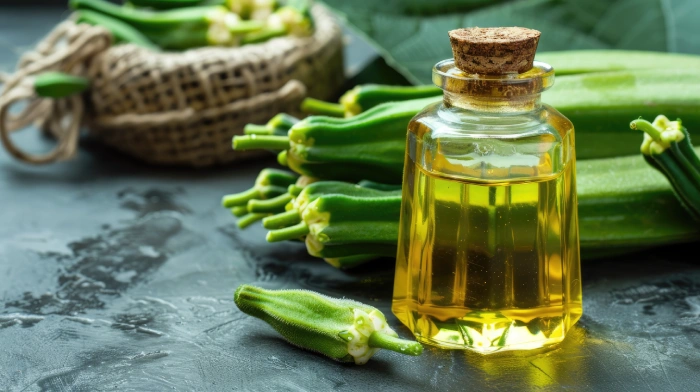New Study Reveals Elderberry Juice Benefits for Weight Management and Gut Health
Recent research led by Washington State University has shed light on the remarkable potential of elderberry juice as a powerful aid for weight management and metabolic health improvement. The study, published in the journal Nutrients, demonstrates that consuming 12 ounces of elderberry juice daily for just one week can lead to significant positive changes in the gut microbiome, enhanced glucose tolerance, and improved fat oxidation.
Elderberry, a small dark purple fruit native to European elder trees, has long been utilized as a medicinal plant and supplement to boost immune function. However, its other potential health benefits have remained largely unexplored until now.
“Elderberry has been undervalued both commercially and nutritionally,” explains Patrick Solverson, the study’s corresponding author and an assistant professor in the WSU Elson S. Floyd College of Medicine’s Department of Nutrition and Exercise Physiology. “We’re now beginning to recognize its substantial impact on human health, and the results are truly exciting.”
The research team conducted a randomized, placebo-controlled clinical trial involving 18 overweight adults to assess elderberry’s effects on metabolic health. Participants were given either elderberry juice or a placebo with similar coloring and taste, specially developed by North Carolina State University’s Food Innovation Lab, while adhering to a standardized diet.
Following the intervention, clinical tests revealed that participants who consumed elderberry juice experienced a significant increase in beneficial gut bacteria, including firmicutes and actinobacteria, along with a decrease in harmful bacteria such as bacteroidetes. A healthy gut microbiome is crucial for nutrient absorption and supports both physical and mental well-being.
In addition to these positive changes in gut microbiota, the elderberry intervention resulted in notable improvements in metabolism. The results showed that elderberry juice reduced participants’ blood glucose levels by an average of 24%, indicating a markedly enhanced ability to process sugars following carbohydrate consumption. Furthermore, insulin levels decreased by 9%.
The study also suggested that elderberry juice can boost the body’s fat-burning capabilities. Participants who received the elderberry juice exhibited significantly increased fat oxidation, or the breakdown of fatty acids, after consuming a high-carbohydrate meal and during exercise.
Researchers attribute these positive effects to elderberry’s high concentration of anthocyanins, plant-based bioactive compounds known for their various health benefits, including anti-inflammatory, anti-diabetic, and antimicrobial properties.
“The concept of food as medicine is gaining scientific validation,” Solverson notes. “This study contributes to a growing body of evidence supporting elderberry’s numerous benefits for metabolic and prebiotic health, a remedy that has been used in folk medicine for centuries.”
While other berries also contain anthocyanins, they typically have lower concentrations. To achieve the same anthocyanin dose found in 6 ounces of elderberry juice, one would need to consume four cups of blackberries daily, according to Solverson.
Although elderberry products have been less popular in the U.S. compared to Europe, demand surged during the COVID-19 pandemic, and the elderberry market continues to grow.
The research team has filed for a provisional patent for using the bioactive components of American black elderberry in weight management and gut health supplements or other applications.
Commentary by SuppBase columnist Alice Winters:

As a nutrition expert and health product commentator, I find the recent study on elderberry juice’s impact on metabolic health both fascinating and promising. This research not only validates traditional uses of elderberry but also opens up new avenues for its application in modern health and wellness strategies.
The study’s findings on elderberry’s ability to positively alter gut microbiome composition are particularly noteworthy. The increase in beneficial bacteria and decrease in harmful ones suggest that elderberry could be a powerful prebiotic supplement. This is crucial, as we increasingly recognize the gut microbiome’s role in overall health, from immune function to mental well-being.
The improvements in glucose tolerance and insulin levels are equally impressive. With the rising prevalence of type 2 diabetes and metabolic syndrome worldwide, natural interventions that can help regulate blood sugar are invaluable. Elderberry juice’s ability to reduce blood glucose levels by 24% is significant and could potentially aid in diabetes management and prevention strategies.
The enhanced fat oxidation observed in participants is another exciting finding. This suggests that elderberry could be a valuable addition to weight management programs, potentially boosting the effectiveness of diet and exercise regimens.
However, it’s important to note that this study, while promising, was relatively small and short-term. Larger, longer-term studies will be necessary to confirm these effects and establish optimal dosing and usage guidelines.
From a market perspective, the growing interest in elderberry products presents both opportunities and challenges. While demand is increasing, ensuring sustainable sourcing and maintaining product quality will be crucial. The high concentration of anthocyanins in elderberry compared to other berries gives it a unique selling point, but it will be important for consumers to choose high-quality, standardized products to ensure they’re getting the full benefits.
The researchers’ move to patent the bioactive components of American black elderberry for weight management and gut health applications is intriguing. This could lead to the development of more targeted, potent elderberry-based supplements. However, it’s worth noting that whole food sources often provide synergistic benefits that isolated compounds may lack.
In conclusion, this research on elderberry juice is a prime example of how traditional remedies are being validated and refined through modern scientific methods. As we continue to search for natural, effective ways to support metabolic health and weight management, elderberry emerges as a promising candidate. However, as with any supplement, it’s crucial to approach its use thoughtfully and in conjunction with a balanced diet and healthy lifestyle.


